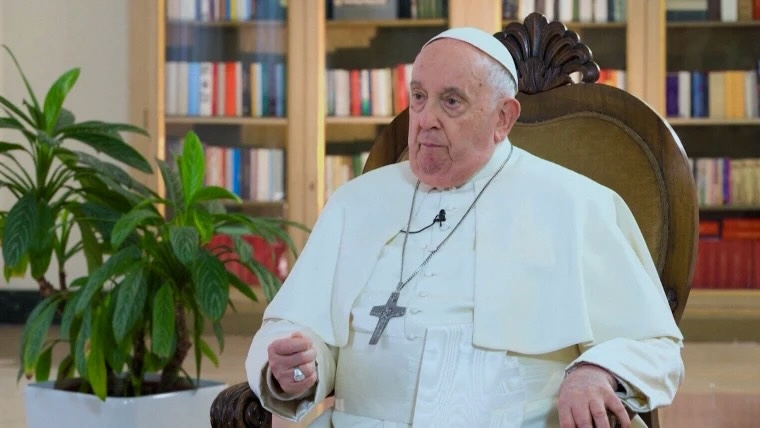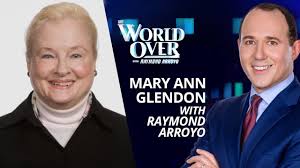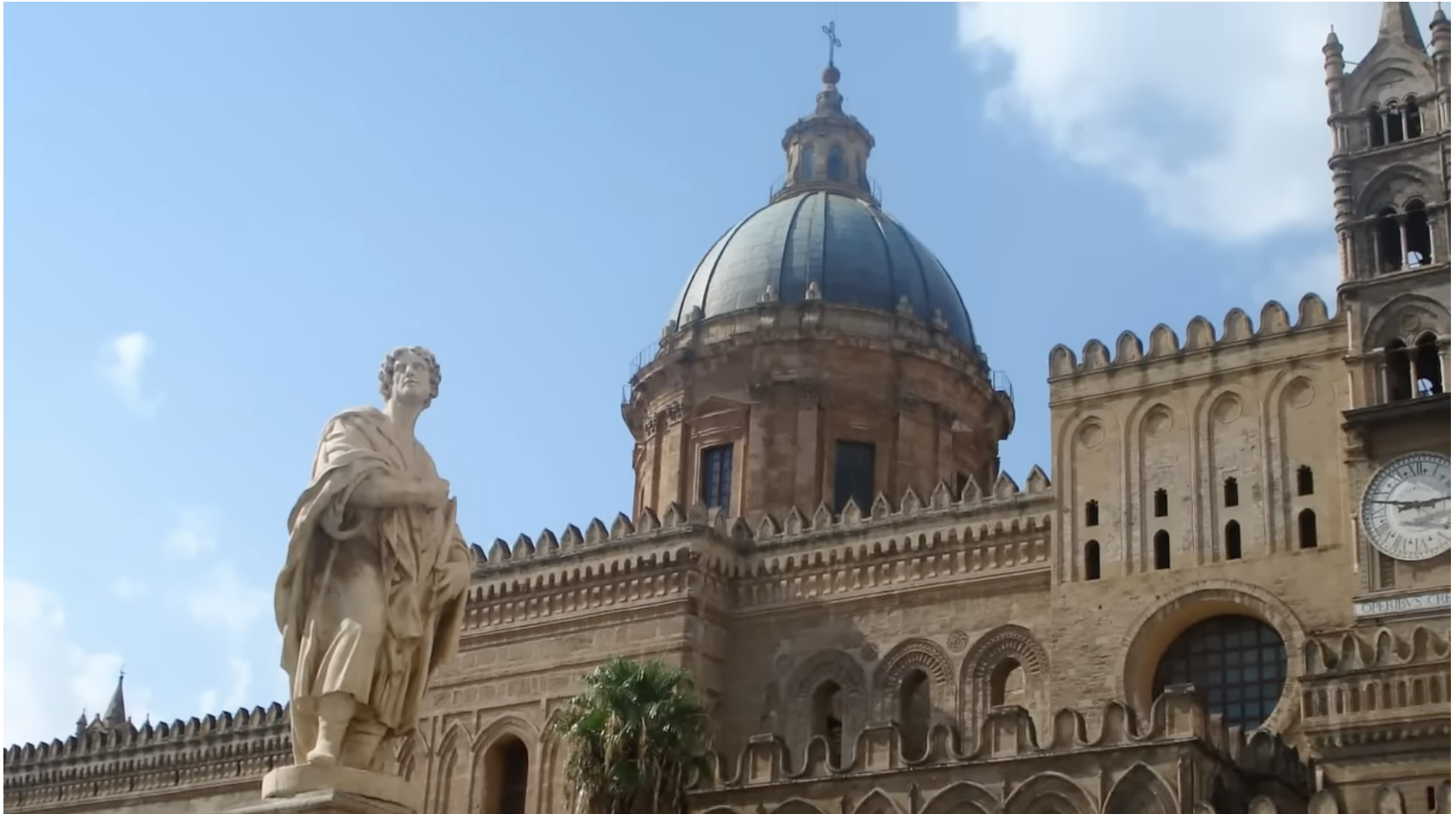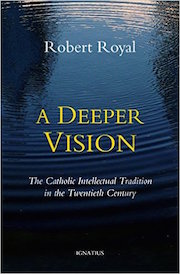To an unusual degree – at least in English – the public presentation of the current pontificate, which marked its eleventh anniversary this week, has been entrusted to various commentators.
The Roman Curia under Pope Francis lacks John Paul-era figures like Cardinals Joseph Ratzinger, Benardin Gantin, Camillo Ruini, Francis Arinze, and Eduardo Pironio (already beatified), who had the stature and following to offer authoritative interpretations.
Under Pope Francis, putatively authoritative interpretations – again, in English – are outsourced to independent figures like Austen Ivereigh (UK), Michael Sean Winters (USA), Massimo Faggioli (Italy), and (in all languages) Fr. Antonio Spadaro. In recent months though, a certain frustration appears to have set in, brought vividly to a head by the Holy Father’s recent comments about Ukraine raising the “white flag” of negotiation, which caused deep dismay among Ukrainian Catholics.
I offer as an example my preferred source for Francis-friendly hermeneutics: Where Peter Is (WPI) a site run by Mike Lewis. He founded it in 2018 to offer “an apologetical approach” to Pope Francis in face of his critics. I consider him a good model of the dialogue that the Holy Father calls for.
“We’ve explained at great length the traditional Catholic understanding of papal primacy and authority,” Lewis writes. “We have repeatedly clarified what the Church teaches on the role of the living Magisterium. On many controversial questions, we’ve responded in great detail with the Church’s position on every debated aspect of an issue multiple times. Six years ago, we wanted to start a website that helped explain Pope Francis to our fellow Catholics who claimed to be ‘confused’ by him and his teachings. We’ve made the case for Pope Francis’s teachings throughout this time.”
WPI’s commentaries are serious, well-researched, and careful. For example, recent posts on concelebration and traditionalists, or the ontological non-superiority of priests were comprehensive, theologically competent, and fair. WPI has its point of view, but often shows respect to those it is criticizing. It is unabashedly in the Holy Father’s corner at all times, but that is not a bad thing to say about Catholics – and in the environment this pontificate has engendered it is understandable. Partisanship abounds.
For those who wish to keep abreast of the wackier things going on in the wild internet precincts of those truly deranged by Pope Francis, WPI has the patience and doggedness to report on it.
So it was noteworthy in December that, while defending Fiducia supplicans on blessings for irregular and same-sex couples, Lewis proposed a new year’s resolution “to begin again with Pope Francis.” He suggested that it’s time to go back and start over with Evangelii gaudium, which had a profound influence on Lewis.
“If this week in the Church has shown anything, it’s that many Catholics simply don’t get Pope Francis. Particularly in the US – although clear cracks have appeared in Germany, Africa, and Eastern Europe as well – there is a disconnect between the pope and many of the people, even after ten years,” Lewis writes. “It isn’t only affecting those who are openly rebellious or critical of him, either. I’ve seen many express that they think he’s well-intentioned, but sense that he is naive, out-of-touch, or is listening to bad advisors.”
After sending out hundreds of thousands of words over six years explaining the grandeur of the pontificate, Lewis is frustrated that somehow it is not getting through. So, it is time to start all over again, because surely a second time through will convince the recalcitrant.
The Holy Father’s responsible critics are not unaware of the beauty of Evangelii gaudium. They simply don’t see its evangelizing urgency reflected, for example, in the synodal process on synodality for a synodal Church.

Recall that in 2013 George Weigel wrote fulsomely in the Wall Street Journal that Evangelii gaudium is “a clarion call for a decisive shift in the Catholic Church’s self-understanding. . .the great historical transition from institutional-maintenance Catholicism to the Church of the New Evangelization.”
This week Weigel returned to those pages with an excoriating assessment of the “white flag” approach of Pope Francis to international relations. The problem that frustrates Lewis and others is not that people are not paying enough attention, but rather too much. So Lewis concluded last month that ill will – and worse – must be the problem.
“The damage done by the people in the indietrist movement is real, but no individual can stop it,” wrote an exasperated Lewis. “The only way they’ll ever change is if they respond to the promptings of the Holy Spirit in their hearts. The painful truth is that we can’t dialogue with the devil. And much of the opposition to the teaching of Pope Francis is straight from the bowels of hell. . . .And I have finally discerned that it’s time for me to say, in the words of Fr. Jacques Hamel, ‘Go away, Satan.’”
That eruption is uncharacteristic of Lewis. Of course there is no shortage of ill will to be found in the angrier corners of the internet. But that is not where the problem lies. The question that African and Ukrainian and Dutch and Asian (and American) bishops have is not Where Peter Is – Francis is Peter in Rome – but where the Peter of Evangelii gaudium went.
It is impossible to imagine that eleven years into John Paul’s pontificate anyone would seriously think it time to begin again to figure out the pontificate. John Paul did not face an angry internet, but he did face hundreds of leading theologians signing the Cologne Declaration, including leading figures such as Fathers Eduard Schillebeeckx, Johann Baptist Metz, Hans Küng, Norbert Greinacher, Ottmar Fuchs, and Bernard Häring. The January 1989 declaration was a pointed vote of non-confidence in the pope.
John Paul did not go back to the beginning. He got on with the task at hand. Later that year European Communism was vanquished; three years later the Catechism was published and in 1993 Veritatis splendor was issued.
Another prominent Francis interpreter is Michael Sean Winters of the National Catholic Reporter, who published an anniversary reflection this week entitled, “Our Wonderful Pope is Horribly Wrong about Ukraine,” which lumped the Holy Father in with Neville Chamberlain in his approach to hostile powers.
“The Christian witness [of the Ukrainian Catholic bishops] ought not be discounted or disrupted by a careless choice of words in an interview,” he wrote about Pope Francis.
Again, a remarkable statement. Pope Francis has been speaking ceaselessly about Ukraine for more than two years. Since the initial invasion in 2014, it has been the most significant foreign policy crisis of this century. To get that “horribly wrong” after all this time is a rather damning indictment from a friend. And to be “careless” about such a grave matter leads Winters to advise the Holy Father to give “far fewer interviews.”
Thus, the eleventh anniversary arrives with some disquiet among those most devoted to the Holy Father’s program. Despite his frustrations, Lewis vows to carry on. I will continue to read WPI to great profit.















